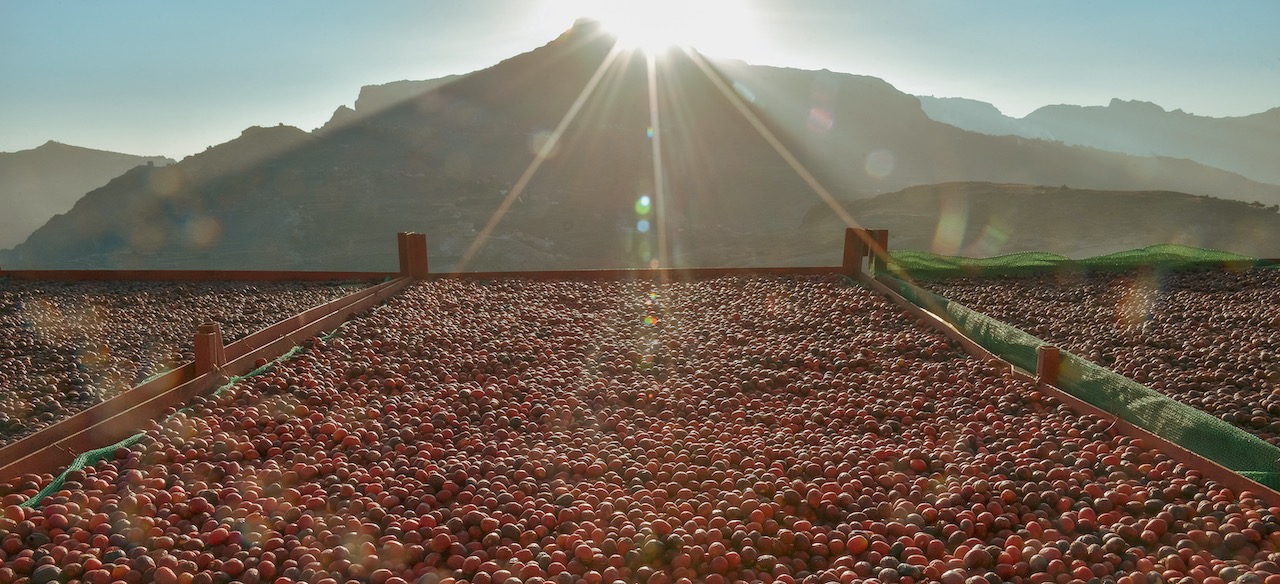
Bringing Back Identity
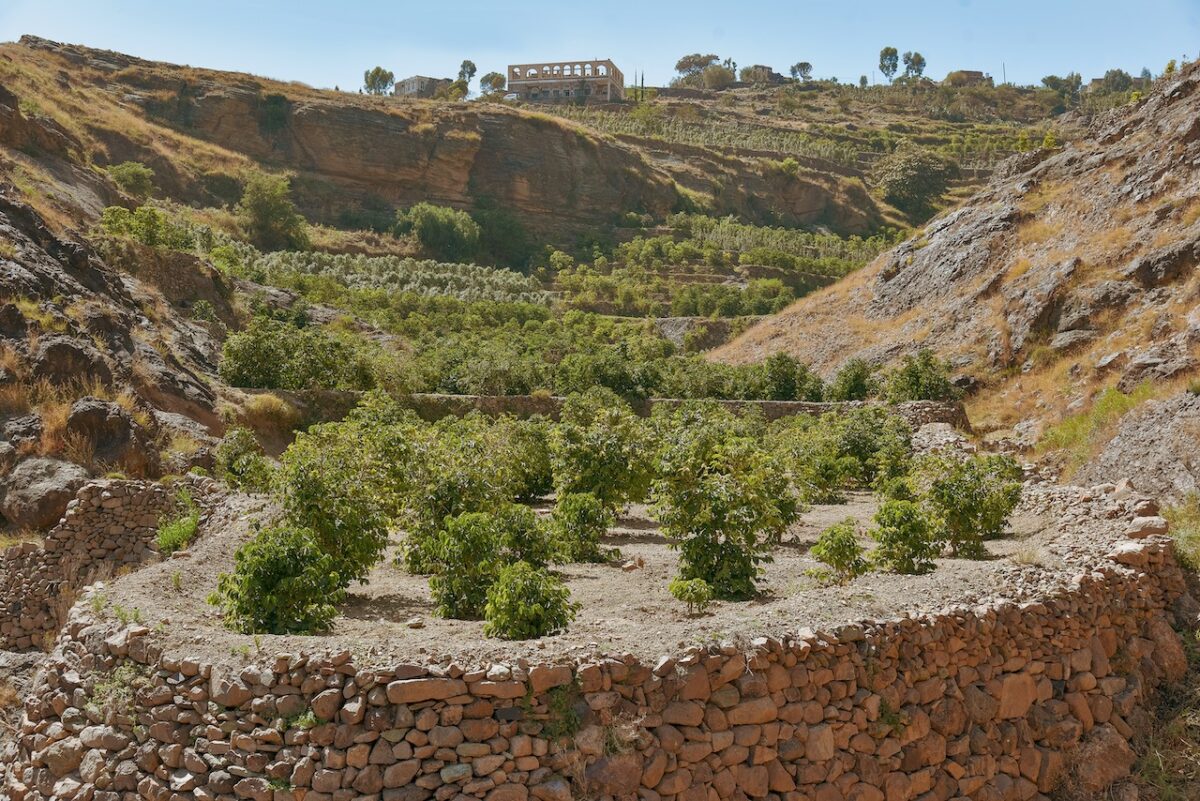
The word “Mokha” may stir a feeling of fond nostalgia and romance among many coffee lovers. That’s the name of a Yemeni port that exported coffee to the world for the first time. It is also a blanket term that describes Ethiopian and Yemeni coffee. The beverage “mocha” was once shrouded in a veil of mystery, a coffee starkly different from the rest. Abdulrahman Saeed’s ideal may have originated from this history.
Though his roots are in Yemen, Abdulrahman’s life has taken him to various countries. He is now trying to explore Yemen’s identity through coffee. When we first heard about him and reached out, he was just starting to launch a new business to realize his ambitions.
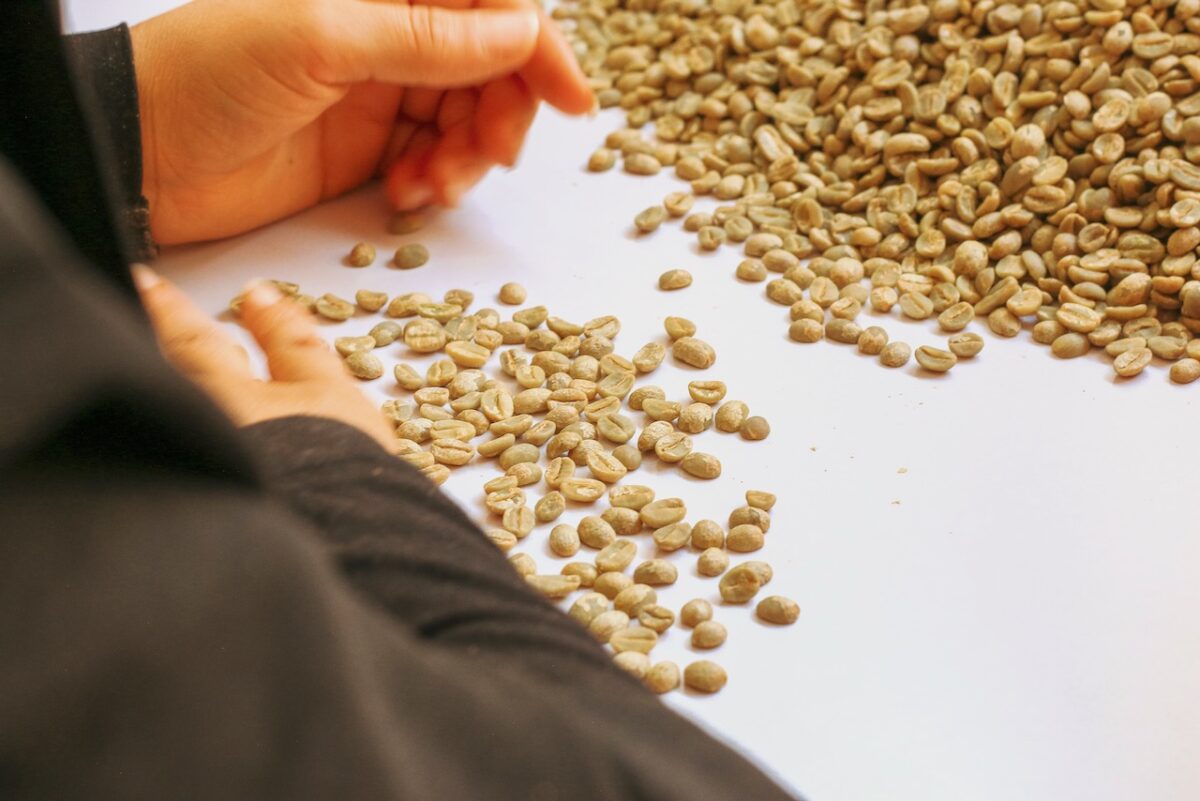
Mokha not Mocha
Abdulrahman previously ran a company with his friends and cousins, sourcing green coffee. But he went independent to pursue his ambitions further, and started preparing by himself to launch an online platform, Mokha not Mocha!, that connects coffee producers in Yemen and roasters across the globe. On his platform, due to go into service in June 2022, users will be able to see producers’ profiles, production quantities and price breakdowns – a feature that is completely in line with TYPICA’s vision. That is how Abdulrahman himself became interested in TYPICA.
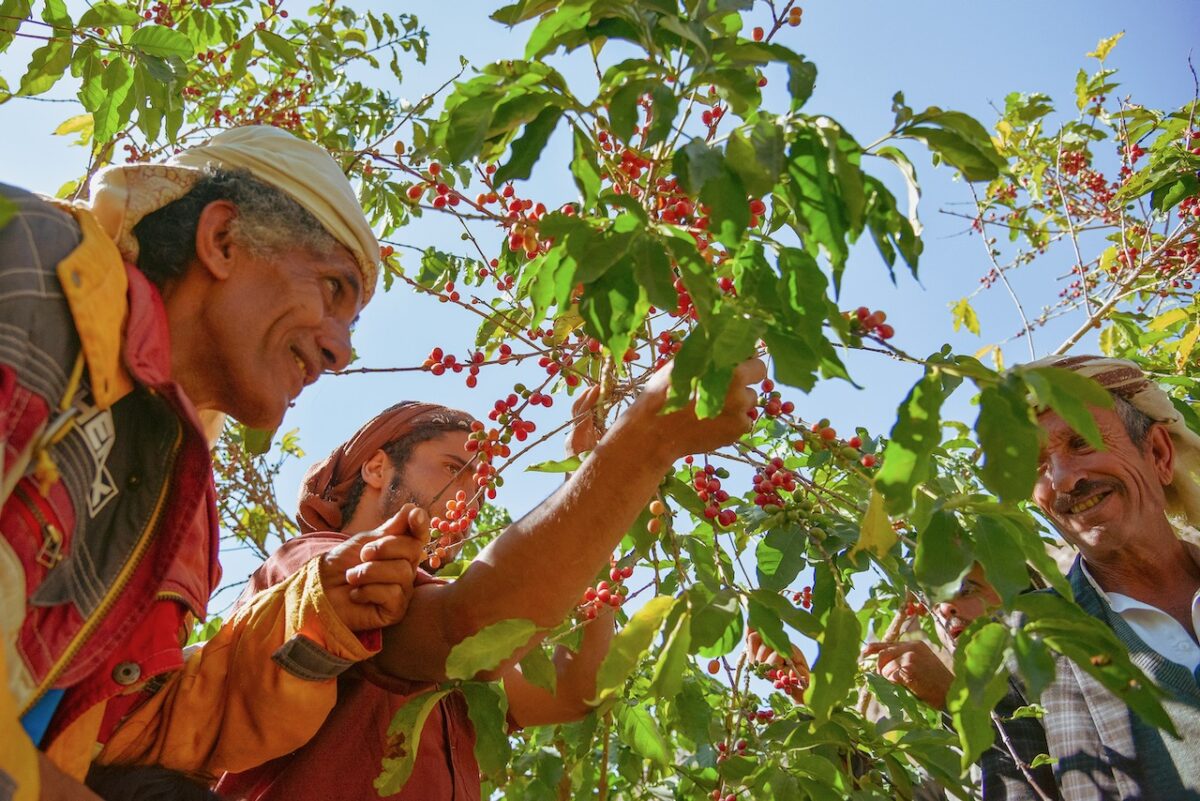
“We have signed a partnership agreement with only around 10 producers so far,” Abdulrahman says. “I would like to focus on deepening ties with producers for the immediate future. But that’s not to say we will take anyone onboard. I am seeking out producers who understand and sympathize with our business, vision and purpose. For us, what’s more important is what kind of producers we can connect with and who they are, rather than how many producers we can connect with.”
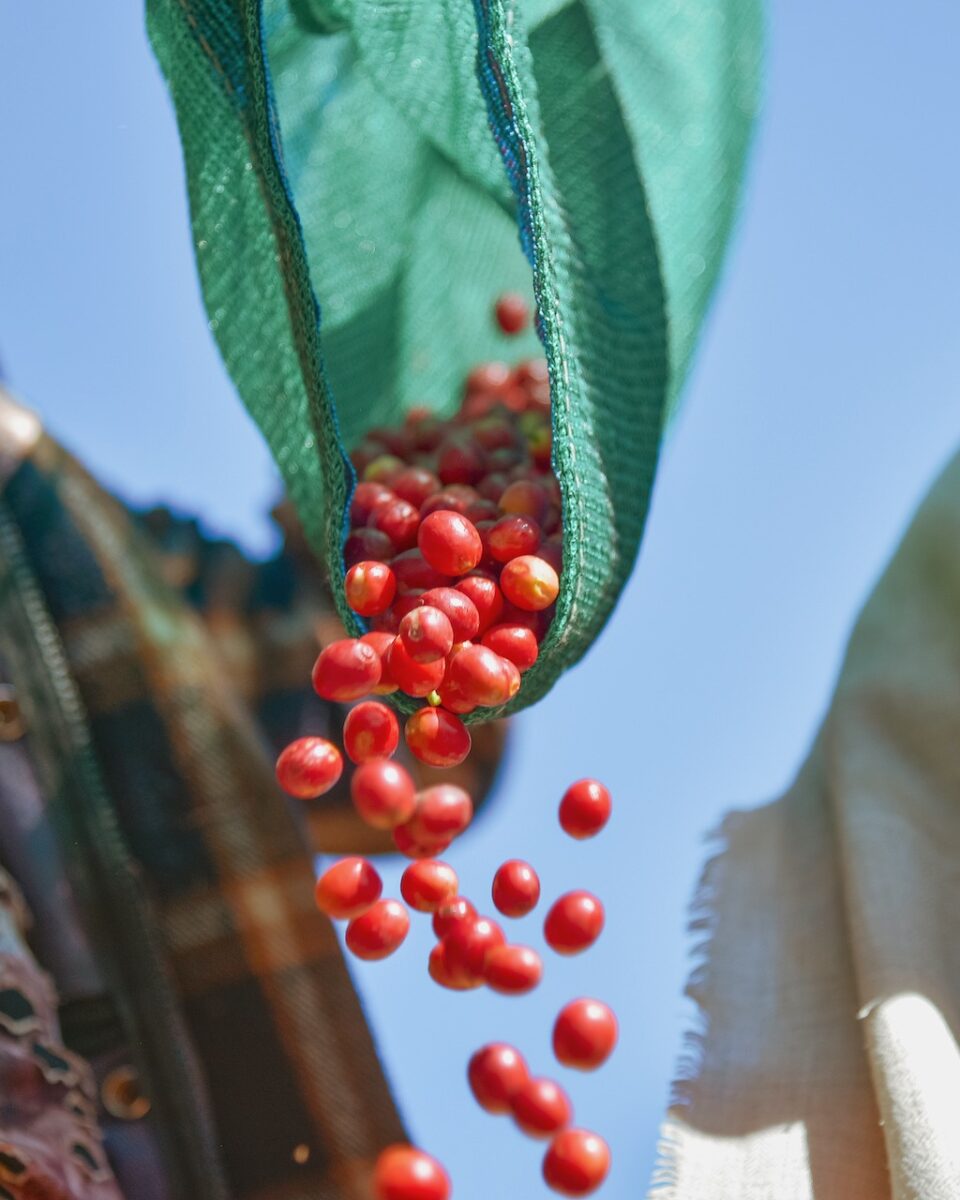
Though the name “Mokha not Mocha!” has a casual ring to it, it encapsulates an existential threat that Abdulrahman thinks faces Yemen’s identity. In the Western world in particular, the word “Mocha” is often used to describe caffe mocha, a drink that includes chocolate syrup, espresso and milk. But few people know its homonym “Mokha”, the Yemeni port and the origin of coffee trade.
“Mokha is the name of the Yemeni port where coffee was exported abroad for the first time in history,” Abdulrahman says. “When you look up the word on Google, search results include two types of spelling, Mokha and Mocha. Mocha is the name of a geographical location. So I don’t want to use it to describe the chocolate syrup-mixed, non-Yemeni coffee.”
Once referred to as Arabia Felix, or fertile Arabia, Yemen thrived as a trading hub. But ravaged by a drawn-out civil war, the country is now suffering from a humanitarian crisis that has plunged around half its citizens into poverty and starvation. Nevertheless, the dire situation draws little interest from abroad, and there is no end in sight for the people’s plight. The civil war decimated Yemen’s industry, culture and diplomatic relations, leaving the country’s national identity on the brink of vanishing. Abdulrahman is striving to tackle this crisis, through a metaphor called coffee, shouting, “Mokha not Mocha!”

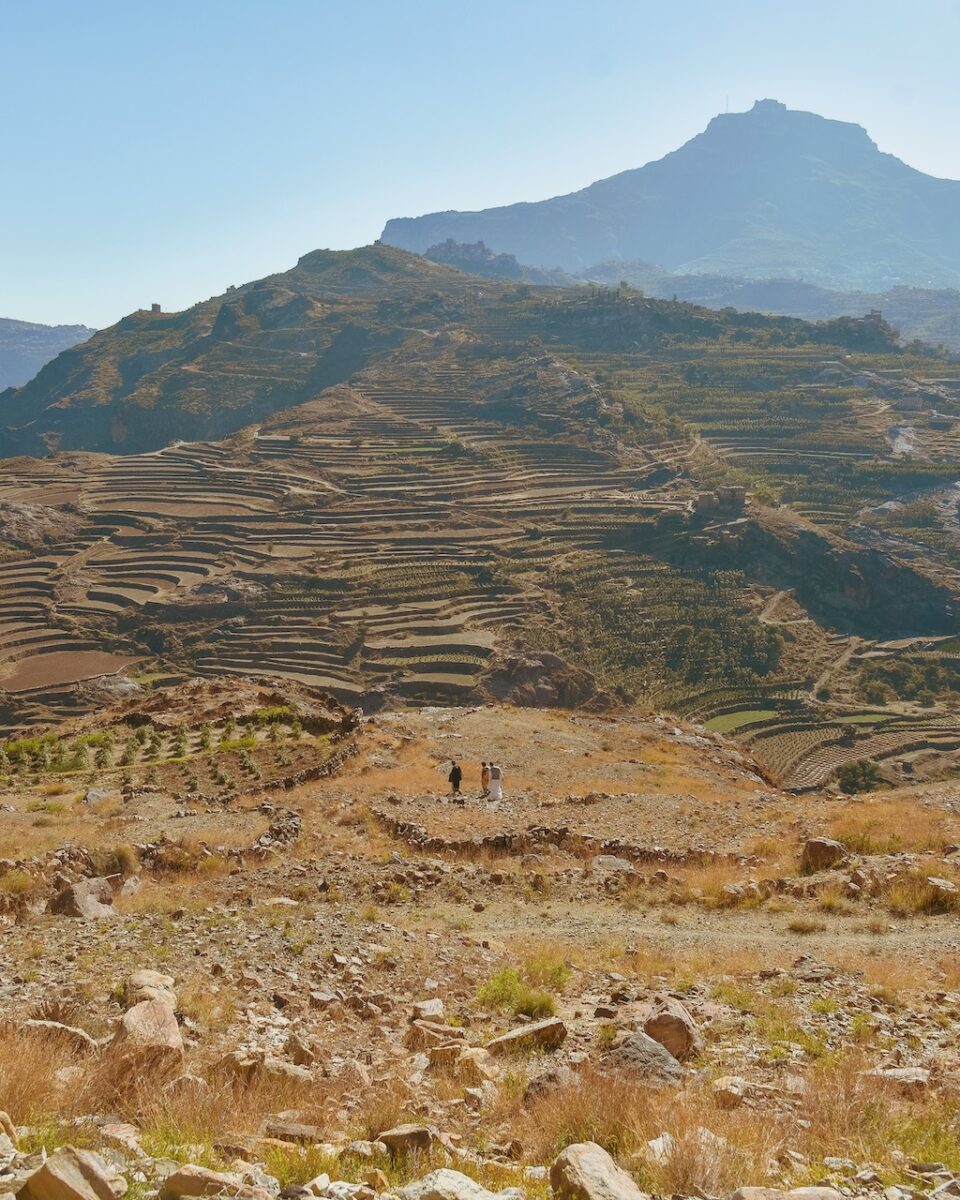
Childhood experiences
Abdulrahman grew up in an environment that’s a little different from ordinary Yemenis’. Born into a wealthy Yemeni family, he spent his childhood in Saudi Arabia. He also has the United Arab Emirates’ citizenship.
“My family runs a food manufacturing company, making various foodstuffs from biscuits to palm oil to dairy products. It is a multinational firm with factories in countries around the world. My grandfather expanded the business. Everywhere I went as a child, I was able to see things created by my grandfather and family. Whenever my father took me to a factory, he was fond of saying, ‘This is what your grandfather built.’ I was always filled with happiness and even humbled when I saw with my own eyes my grandfather’s great contribution to society.”
Abdulrahman is the first of nearly 20 grandchildren for his grandfather, and took over his grandfather’s name.
“In our culture, taking over the name of a grandfather means a special connection with the family. Growing up, I always felt a sense of grave responsibility to have high moral and ethical standards and live up to my family’s expectations.”
Abdulrahman was always treated differently and lived a privileged life since he was a small child. But he gradually started to recognize a wide gap between his circumstances and reality in Yemen. This childhood experience is the backbone of his aspirations.
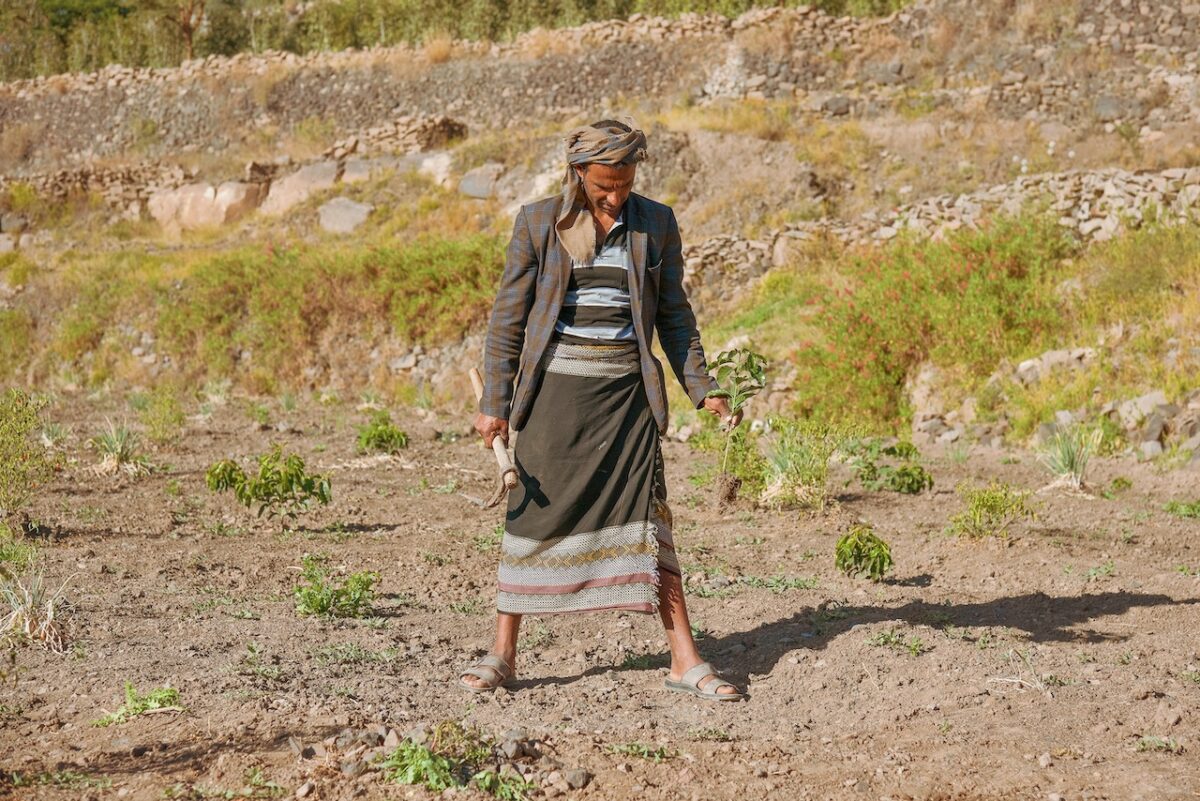
Bringing back identity
Abdulrahman entered a boarding school in the United States when he was 16. He went on to study politics at a university in Boston. He majored in politics because he wanted to bring some kind of solution to Yemen.
“I studied all the theories and subjects at university from the perspective of how I could apply them to Yemen. So I didn’t follow a curriculum imposed by professors at all. I studied based on my own curriculum.”
Abdulrahman also started to take an interest in agriculture, the foundation of the food industry as well as his family business.
“After I grew up, I learned that there are a lot of untransparent, unjust transactions in the supply chain of mass produced, cheap products. That’s why I developed a desire to secure transparency and encourage conscious consumption.”
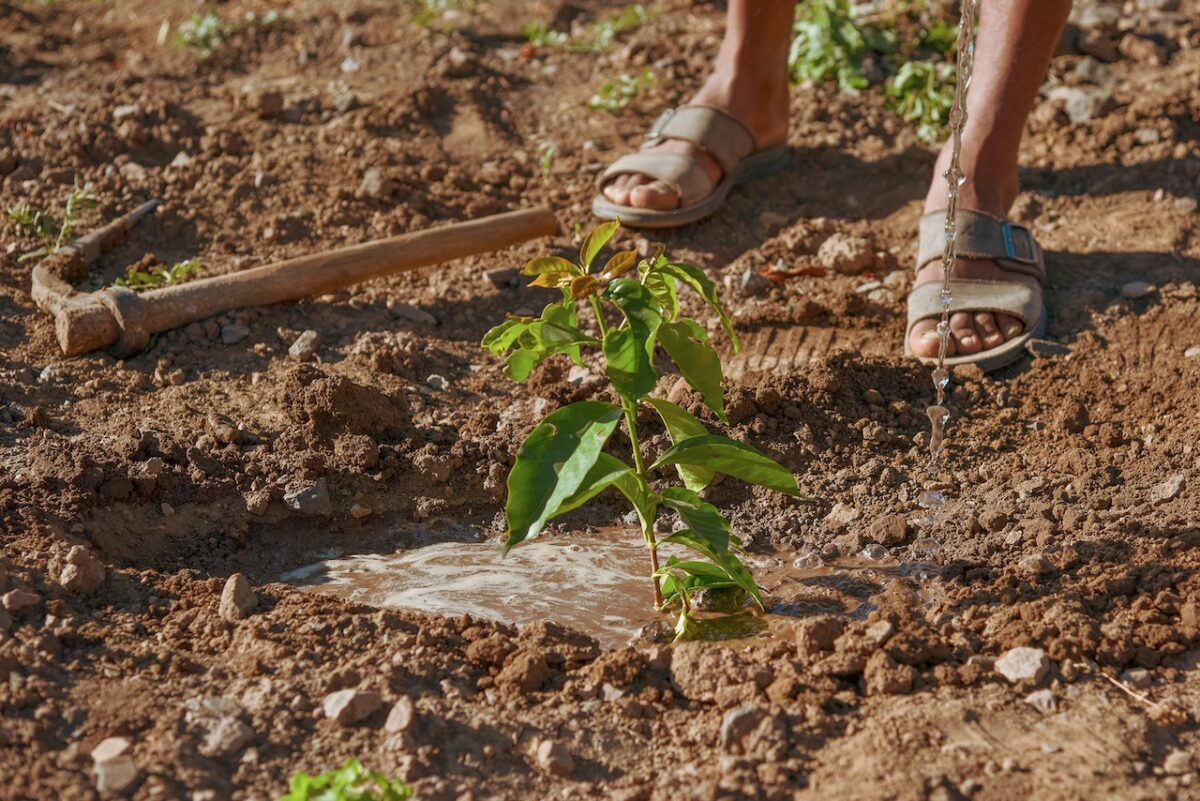
His words are always imbued with a strong sense of mission. While still in university, he asked himself what he wanted to devote his life to. And his answer was to contribute to his home country first, and then to the industry his family is involved in. He arrived at this answer perhaps because of the grave sense of responsibility as the first grandchild of his grandfather, a man of great stature. Or maybe when he looked back toward Yemen from the US with an objective viewpoint, he had a chance to revisit his own identity.
And the field where he saw a potential was coffee.
“After learning about Yemen’s market and the growth of the coffee industry as a whole, I realized I should sell Yemen’s coffee and spread it around the world. I quit university in 2016 and did mandatory military service in the UAE from 2017 to 2018. That’s when I started a coffee business. At first, I founded the company with my friends and cousins. But over time, I came to believe that only I could truly believe in my crazy vision of bringing back Yemen’s identity, and decided to go independent.”
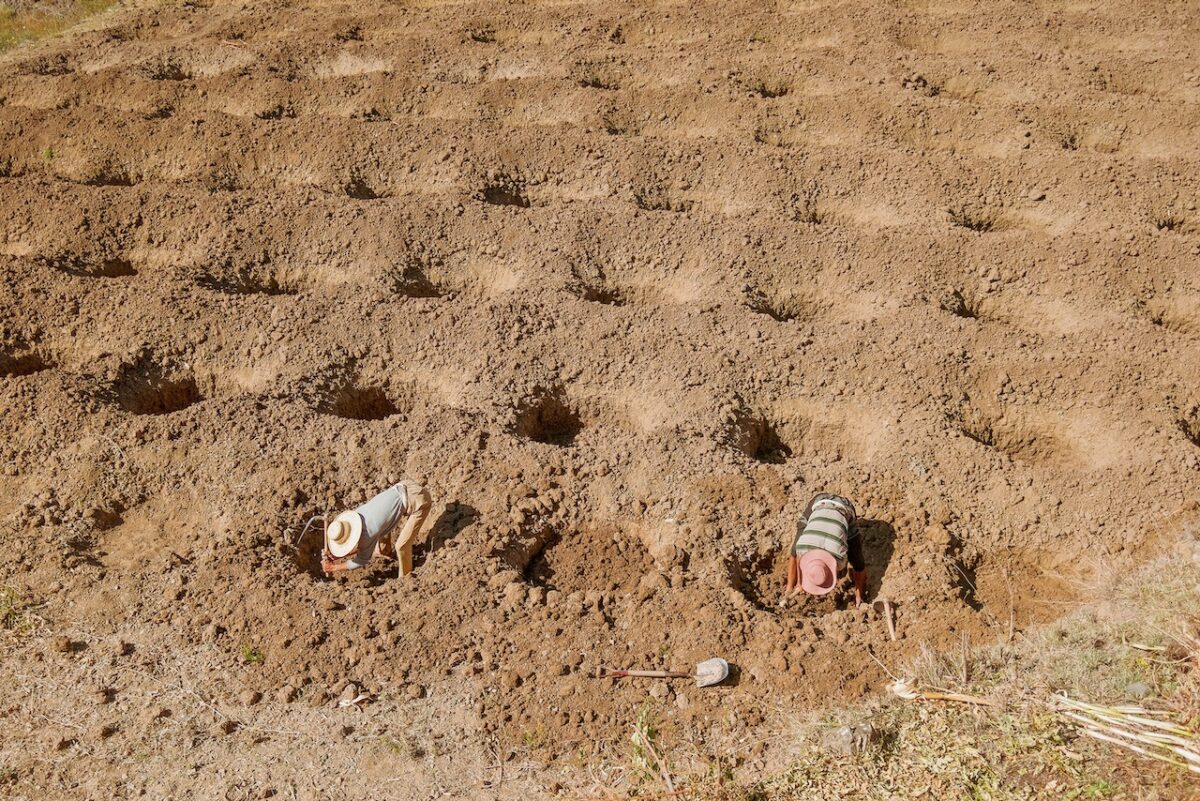
For Abdulrahman, coffee was the suitable subject that aligns with his vision. But making inroads into an already established supply chain and rebuilding value was no easy task. Abdulrahman eventually encountered a concept of platform.
“Everything changed in my head ever since. Even a coffee that’s now sold for 50 dollars per kilogram could fetch 300 dollars per kilogram if an internationally famous, luxury hotel starts to buy it. It is important to have a fresh mindset that liberates yourself from past experiences. Now that we can set prices freely, it is possible to rebuild value.”
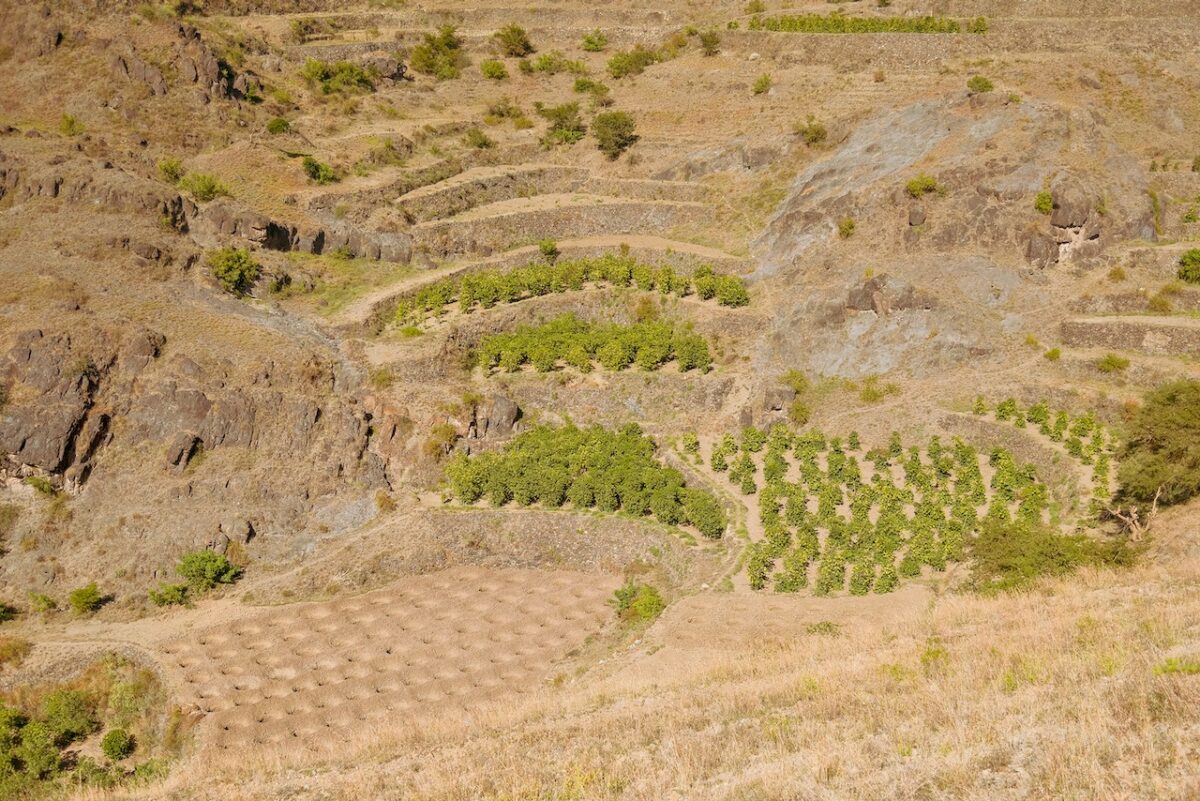
If Mokha not Mocha! empowers Yemen’s coffee producers to set their own prices and sell their coffee directly to roasters around the world, his platform can open up a way for Yemeni people as a whole to become financially independent. For all these years of turmoil in Yemen, its coffee is still rare and has an exotic appeal nonetheless. If Abdulrahman spreads Yemeni coffee’s value all over the globe and ensures transparency in the process, Yemen may be able to bring back its identity as an origin of great coffee, just as Yemen’s coffee was once revered as Arabian Mokha.

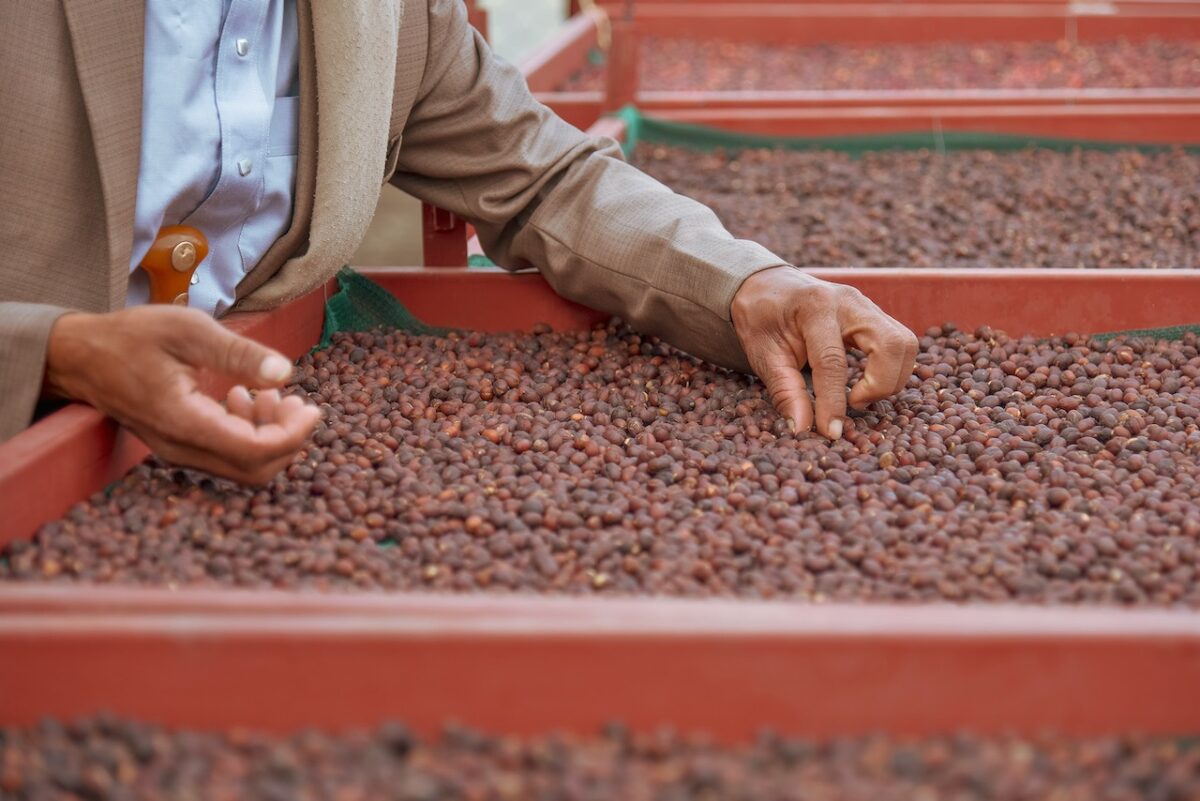
Future
Abdulrahman tells us where he wants to take his business down the line.
“After we develop the Yemeni coffee market and have more people join Mokha not Mocha!, I would like to expand into roasting and create our own brand for roasted coffee. We’ll have more business opportunities if we have an option of roasting leftover green coffee ourselves.”
Abdulrahman also says that he wants to sell other agricultural products on his platform, too.
“Once we establish a market presence in the field of coffee, we can make our way into any area based on that model. For example, we may be able to create a traceable chain for Yemeni cotton. Anyway, our philosophy is always the same: to be involved in the entire supply chain from raw materials to products in everything we do. We are now experimenting through coffee, trying to see if the concept behind Mokha not Mocha! works.”
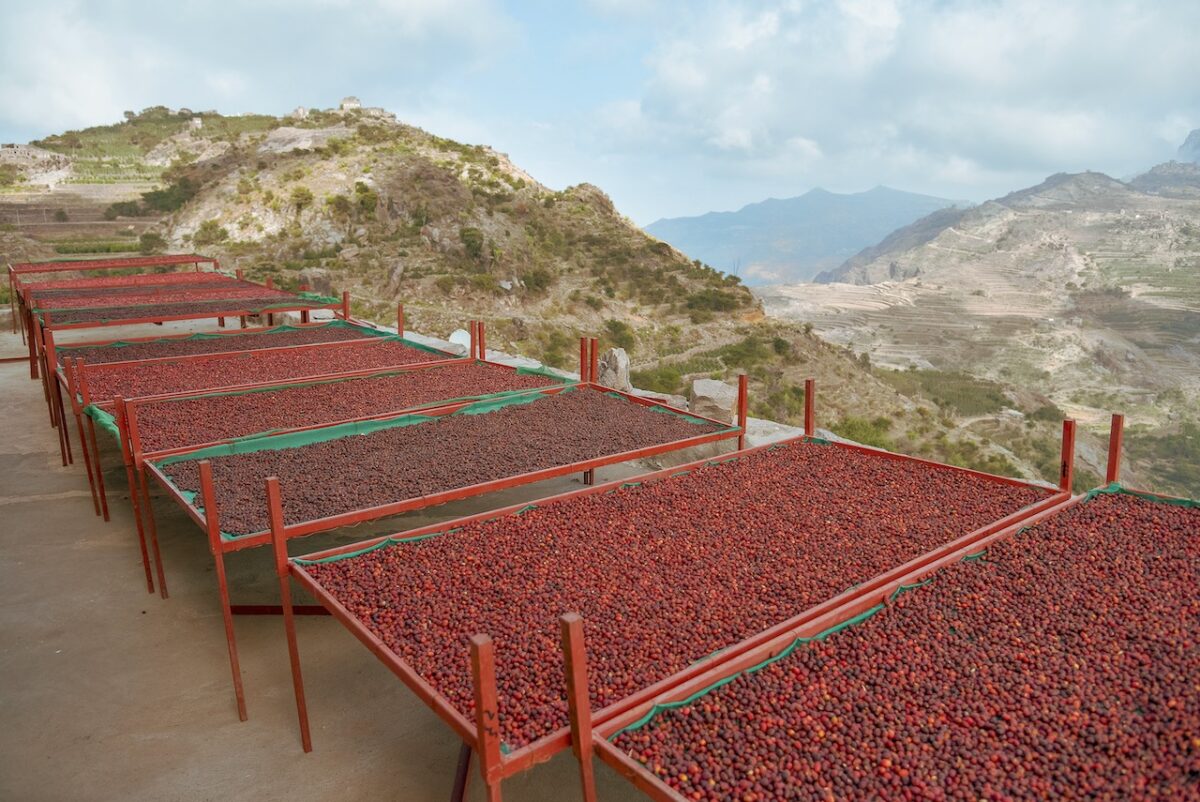
Abdulrahman keeps his eyes wide open and sets his sights firmly on the future, perhaps a mindset he inherited from a family that runs a large corporation. For Abdulrahman, making his coffee business a success is a crucial step toward realizing his lofty ideals.
“I see Yemen as a place where I can start from scratch and be whatever I want to be. At least I believe so. And now, I’m about to take a small step, one that’s necessary to fulfill my wish to make Yemen a great country beyond people’s imagination.”
Just as his grandfather climbed his way to great success in a country without the riches of its neighbors, Abdulrahman himself is firmly on his path to becoming what he wants to be.
Ahead of the launch of Mokha not Mocha!, Abdulrahman will offer Yemeni coffee on TYPICA’s platform. His uncompromising passion has the power to rally roasters the world over behind his vision, and surely reshape the future of Yemen. We may be on the cusp of a day when coffee changes the fate of a country.








